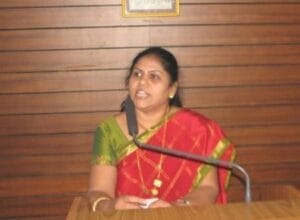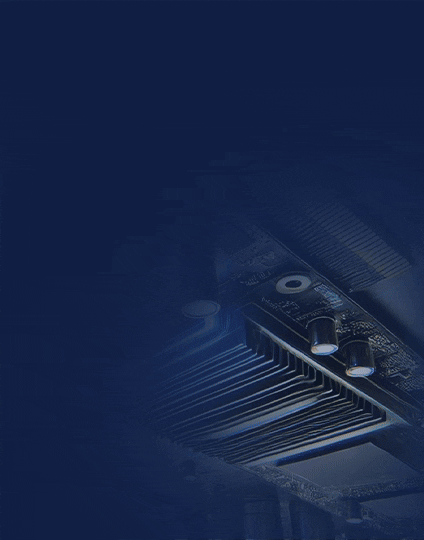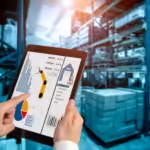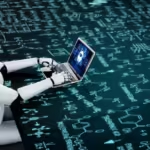Meet Dhivya Rajendran, a Senior Software Engineer in Tech Mahindra’s Protocol Department for Cisco. She shares her challenges, insights for aspiring women engineers, and reflections on her evolving role in the tech industry.
Women in Engineering with Dhivya Rajendran
FPGA Insights has conducted an exclusive interview with Dhivya Rajendran, a Senior Software Engineer at Tech Mahindra, to gain valuable insights into her experiences as a woman in engineering.
1) What’s your Name, job title & area of research/work?
My name is Dhivya Rajendran. I am a senior software Engineer in the Protocol Department team of Tech Mahindra for Cisco. As a senior engineer, my primary area of research is MPLS, where I focus on developing and optimizing high-speed interconnect technologies. My work involves designing and validating cutting-edge solutions that enhance data transfer rates, improve latency, and ensure compatibility with next-generation computing systems. I am deeply involved in the technical leadership and management of projects that drive innovation in PCIe architectures, contributing to advancing high-performance computing and storage solutions.
2) What sparked your interest in engineering? Can you describe the moment you realized this was a field you’d like to pursue?
My interest in engineering was sparked by a combination of curiosity and determination to break barriers. Growing up, I was always fascinated by how things worked, from the gadgets around the house to the infrastructure in my community. However, I noticed early on that there weren’t many women in the field, which only fueled my desire to pursue engineering. I wanted to challenge the status and prove that gender should never be a limitation in any career.
The moment I realized engineering was the right field for me came during my high school. As I advanced in my studies and career, my passion for engineering only grew stronger. I’ve embraced the challenges and opportunities that come with being a woman in a traditionally male-dominated field, and I’m committed to contributing to the industry while also clearing the way for future generations of women engineers.
3) What are your experiences of being a female engineer?
Being a female engineer involves overcoming biases, building supportive networks, inspiring others, managing unique challenges, and bringing valuable diverse perspectives.
4) Can you tell me more about your career path so far?
A SQL (Structured Query Language) developer is a professional responsible for designing, implementing, and maintaining databases to store and manage data. Their primary focus is on ensuring data integrity, security, and performance.
Key Responsibilities:
1. Design and implement database architectures.
2. Develop and optimize SQL queries, stored procedures, and functions.
3. Ensure data integrity, security, and compliance.
4. Collaborate with developers, data analysts, and stakeholders.
5. Perform database testing, debugging, and maintenance.
6. Optimize database performance and scalability.
7. Implement data warehousing and business intelligence solutions.
Skills:
1. SQL programming (T-SQL, PL/SQL, MySQL).
2. Database management systems (SQL Server, Oracle, MySQL).
3. Data modeling and design.
4. Query optimization and performance tuning.
5. ETL (Extract, Transform, Load) processes.
6. Data warehousing and business intelligence.
7. Database security and compliance.
Tools and Technologies:
1. SQL Server Management Studio (SSMS).
2. Oracle Enterprise Manager.
3. MySQL Workbench.
4. Database design tools (e.g., ER/Studio, DBDesigner).
5. Version control systems
5) What has been your most challenging experience as an engineer?
Common challenging experiences for software engineers include:
Technical Challenges:
1. Debugging complex issues.
2. Integrating multiple systems.
3. Optimizing performance.
4. Ensuring scalability.
5. Resolving compatibility issues.
Soft Skill Challenges:
1. Communication with non-technical stakeholders.
2. Team collaboration and conflict resolution.
3. Managing deadlines and prioritizing tasks.
4. Adapting to changing requirements.
5. Dealing with technical debt.
Personal Challenges:
1. Continuous learning and staying up-to-date.
2. Balancing work-life responsibilities.
3. Managing stress and burnout.
4. Overcoming imposter syndrome.
5. Navigating career growth and advancement.
6) What is the most exciting thing about your job?
Top Exciting Aspects:
1. Problem-solving: Optimizing queries, and resolving performance issues.
2. Data insights: Uncovering hidden trends, and patterns.
3. Creativity: Designing efficient database architectures.
4. Continuous learning: Staying updated on new SQL features, and tools.
5. Collaboration: Working with cross-functional teams.
Key Thrills:
1. Seeing efficient queries execute swiftly.
2. Identifying and fixing performance bottlenecks.
3. Designing scalable database solutions.
4. Developing reusable stored procedures.
5. Ensuring data integrity and security.
Growth and Opportunities:
1. Expanding skill sets to data science and machine learning.
2. Moving into leadership or architect roles.
3. Specializing in cloud-based databases.
4. Developing own database tools or frameworks.
5. Participating in open-source database projects.
Day-to-Day Excitement:
1. Overcoming complex query challenges.
2. Analyzing data to inform business decisions.
3. Collaborating with developers and data analysts.
4. Refining database designs.
5. Staying current with industry advancements.
Why become a SQL developer?
1. High demand across industries.
2. Competitive salaries, and benefits.
3. growth opportunities, and specialization.
4. Dynamic, challenging work environment.
5. Sense of accomplishment in optimizing data management.
7) What kind of impact would bring you great satisfaction in your work?
Types of Impact:
1. Improving data accessibility: Enhancing query performance, simplifying complex data retrieval.
2. Optimizing business processes: Streamlining data workflows, and automating tasks.
3. Ensuring data integrity: Implementing robust data validation, and security measures.
4. Informing business decisions: Providing actionable insights through data analysis.
5. Enhancing user experience: Developing intuitive database-driven applications.
Satisfaction Sources:
1. Seeing efficient database solutions improve business operations.
2. Receiving positive feedback from users, and stakeholders.
3. Overcoming complex technical challenges.
4. Contributing to data-driven decision-making.
5. Continuously learning, and improving skills.
Measuring Impact:
1. Query performance metrics (e.g., execution time, resource usage).
2. User adoption, and satisfaction rates.
3. Business process efficiency gains.
4. Data quality, and integrity improvements.
5. Feedback from colleagues, and managers.
Long-term Goals:
1. Lead database architecture design.
2. Develop, and implement data warehousing solutions.
3. Mentor junior developers.
4. Contribute to open-source database projects.
5. Present at industry conferences.
8) What do you think needs to be done to improve the statistics in terms of women’s participation in engineering?
Education and Awareness:
1. Early exposure to STEM fields (K-12).
2. Mentorship programs, and career guidance.
3. STEM education initiatives for girls.
4. Highlighting women engineers’ achievements.
Inclusive Culture:
1. Diversity, equity, and inclusion training.
2. Flexible work arrangements (parental leave, telecommuting).
3. Unbiased hiring practices.
4. Women-focused networking events.
Industry Support:
1. Scholarships, and internships for women.
2. Women in STEM conferences, and workshops.
3. Partnering with women-focused organizations.
4. Advocating for policy changes.
Retention Strategies:
1. Career advancement opportunities.
2. Leadership development programs.
3. Addressing unconscious bias.
4. Creating women-led teams.
Data Collection and Analysis:
1. Tracking women’s participation metrics.
2. Analyzing dropout rates, and reasons.
3. Identifying successful programs, and strategies.
Government Initiatives:
1. Funding STEM education programs.
2. Implementing diversity-focused policies.
3. Encouraging women-led startups.
Men as Allies:
1. Advocating for inclusivity.
2. Supporting women colleagues.
3. Challenging biases.
9) What do you enjoy most and least about engineering?
What I Enjoy Most:
Problem-Solving: The process of finding solutions to complex problems is immensely satisfying. Each challenge offers a chance to learn and innovate.
Innovation: Working on cutting-edge technologies and contributing to advancements in high-speed interconnect technologies is thrilling. It’s rewarding to see the impact of my work on next-generation computing systems.
Collaboration: Engaging with a diverse team of talented professionals enhances creativity and fosters a dynamic work environment.
Continuous Learning: Engineering is a field that constantly evolves, providing endless opportunities to acquire new knowledge and skills.
What I Enjoy Least:
Work-Life Balance: The demanding nature of engineering projects can make it difficult to maintain a healthy balance between work and personal life.
Bias and Stereotypes: As a woman in a predominantly male field, dealing with biases and stereotypes can be challenging and sometimes discouraging.
Technical Debt: Managing and resolving technical debt can be tedious but is crucial for maintaining the integrity and performance of systems.
Rapid Changes: While continuous learning is exciting, the fast pace of technological advancements can sometimes be overwhelming and stressful.
10) Who has been your greatest support, coach, and mentor across [Industry], and why?
Throughout my career, several individuals have played significant roles in my development:
Early Mentors: My high school science teachers who recognized my potential and encouraged me to pursue engineering.
College Professors: Professors who provided academic guidance, challenged me to think critically, and supported my research endeavors.
Professional Mentors: Senior colleagues and managers at Tech Mahindra and Cisco who offered invaluable advice, shared their experiences, and helped me navigate the complexities of the industry.
Family: My family has been a consistent source of emotional support and encouragement, helping me stay motivated through all the ups and downs.
11) What is it like to be a woman in engineering? Do you feel that your gender gives you a different perspective and experience from your male counterparts? Any advantages?
Experience as a Woman in Engineering: Being a woman in engineering has been a journey of breaking barriers and overcoming challenges. It involves proving that gender does not define one’s abilities or potential. While there have been hurdles related to biases and stereotypes, these experiences have only strengthened my resolve and determination.
Different Perspective and Experience: Yes, I believe my gender provides a unique perspective. Women often bring diverse viewpoints and problem-solving approaches, leading to more innovative and inclusive solutions. My experiences have taught me to be empathetic, collaborative, and persistent—qualities that are invaluable in engineering.
Advantages:
Diverse Thinking: Bringing a different perspective often leads to more well-rounded and creative solutions.
Role Model: Being a woman in engineering allows me to serve as a role model and mentor for other women aspiring to enter the field.
Resilience: Facing and overcoming gender-based challenges has built my resilience, making me more adept at handling various obstacles in my career.
12) What advice do you have for women interested in engineering? What kinds of practical experience should they have? What technical skills should they pick up?
Advice for Women Interested in Engineering:
Believe in Yourself: Confidence in your abilities is crucial. Don’t let stereotypes or biases deter you from pursuing your passion.
Seek Mentorship: Find mentors who can provide guidance, support, and valuable insights into navigating the field.
Network: Build a strong professional network. Join women in engineering groups, attend conferences, and engage with the community.
Practical Experience:
Internships: Gain hands-on experience through internships in various engineering domains to understand different aspects of the field.
Projects: Work on real-world projects, either through academic courses or personal initiatives, to apply theoretical knowledge practically.
Collaborative Work: Participate in team-based projects to develop collaboration and communication skills.
Technical Skills:
Programming Languages: Proficiency in programming languages such as Python, C++, or Java.
Database Management: Understanding of SQL and experience with database management systems like SQL Server, Oracle, or MySQL.
Data Analysis: Skills in data modeling, query optimization, and performance tuning.
Software Tools: Familiarity with tools like SQL Server Management Studio (SSMS), Oracle Enterprise Manager, and version control systems.
Continuous Learning: Stay updated with the latest advancements in technology and continuously seek opportunities to learn new skills.











